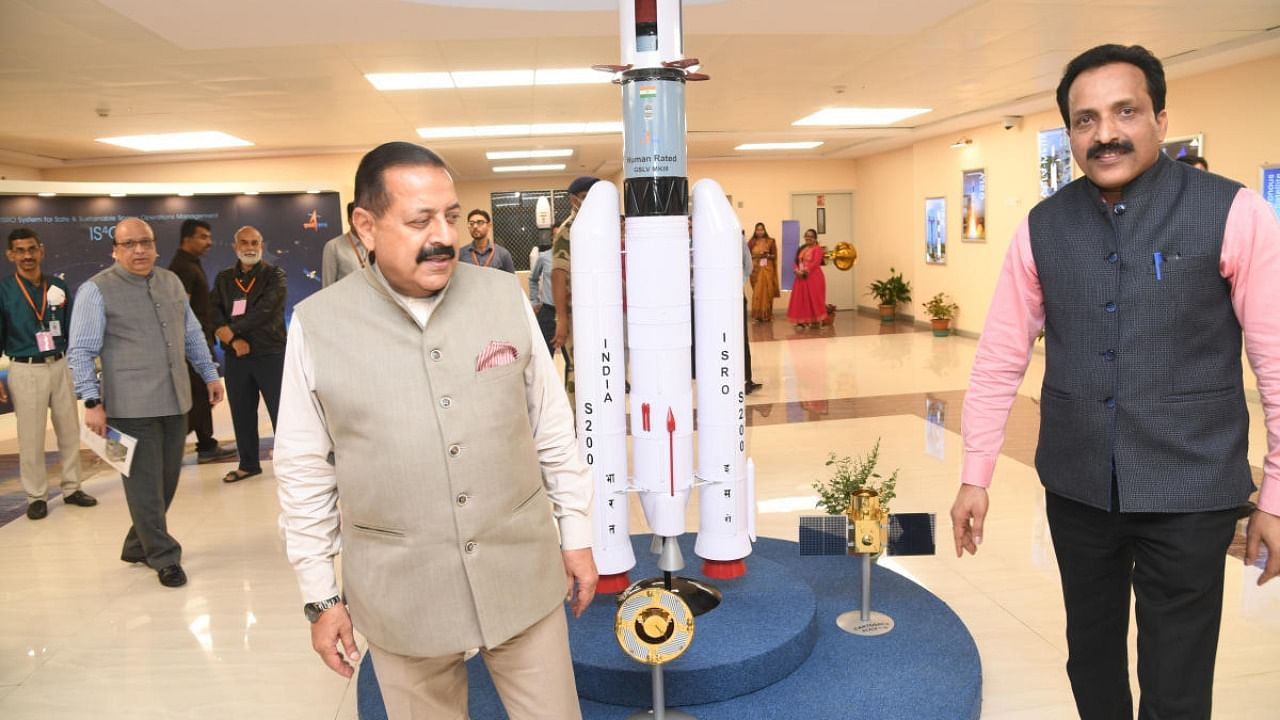
‘Breaking the taboos of the past’, almost 60 space startups have registered with the Indian Space Research Organisation (Isro) to foray deep into innovations in space debris management, nano satellites, launch vehicles and more, Union Minister of State for Science and Technology Jitendra Singh said on Monday.
Singh was in Bengaluru to inaugurate the Isro System for Safe & Sustainable Operation (IS4OM) at the Isro Control Centre. ISROM is designed to support all routine operations safeguarding Indian space assets and mitigating collision threats from space objects through specific collision-avoidance manoeuvres.
The system will also ensure compliance with international guidelines on post-mission disposal and satellites’ end-of-life operations, besides promoting research into space debris and space situational awareness.
Highlighting the risks associated with space debris and collisions, Singh noted that in 1957, there were only two debris hovering in space over the country, while today that number has skyrocketed to over 25,000.
The IS4OM facility, he said, will help India achieve its SSA (Space Situational Awareness) goals by ensuring comprehensive and timely information about the space environment to users.
The platform will provide prompt, accurate and efficient information on on-orbit collision, fragmentation, atmospheric re-entry risk, space-based strategic information, hazardous asteroids and space weather forecast.
Strategic implications
Drawing attention to SSA’s potential strategic implications, Singh spoke about identifying and monitoring operational spacecraft of other countries with close approaches, having overpass over the Indian region. SSA could also track intentional manoeuvres with suspicious motives and re-entry.
On the techniques adopted to tackle the space debris, Isro Chairman S Somanath said: “The first principle is that don’t create debris. If a satellite’s life is over, you have to
re-enter so that it burns out. If it is in a geosynchronous orbit, then it cannot come back to Earth.
“So, it has to be moved to a graveyard orbit. There are now companies and startups, even in India, that are working on how debris can be removed from the orbit.”
Deccan Herald is on WhatsApp Channels | Join now for Breaking News & Editor's Picks